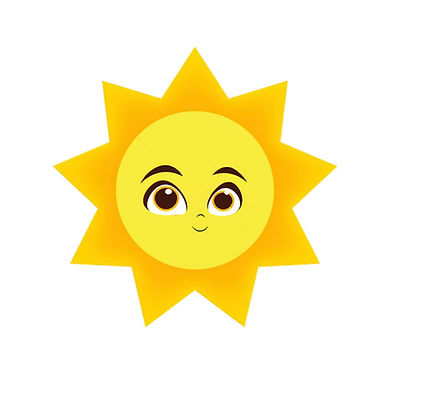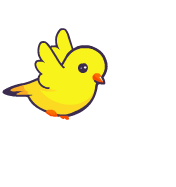
Pediatric Dentist For Babies In Erie, CO
Before your baby’s first tooth even appears, we are here to help you establish good oral health habits.
Our pediatric dental team specializes in baby dental care, and we’re dedicated to positive dental experiences for your little one from infancy through the teen years.
Baby's First Visit to the Dentist
When should your baby first see the dentist? The American Academy of Pediatric Dentistry recommends scheduling your baby's first dental visit by their first birthday or within six months after their first tooth emerges—whichever comes first.
At their first visit to the dentist, we will:
-
Gently examine your baby's existing teeth and gums.
-
Check for proper oral development and identify any potential issues early.
-
Show you how to care for their teeth and discuss use of fluoride and flossing.
-
Address habits like pacifier use or thumb-sucking.
-
Answer all your questions about your baby's oral health

Our Approach to Baby Dental Visits
Teaching kids to love the dentist starts when they are babies! That’s why we take a gentle approach with our tiniest patients:
-
Patient-led pacing: We follow your baby's comfort level, never pushing too quickly
-
Positive first experiences: Creating trust and comfort from the very first visit
-
Gentle techniques: Using specialized approaches designed for tiny patients

Caring for Baby’s Gums Before Teeth Appear
Even before teeth emerge, it’s a good idea to start oral care for your baby. We recommend starting the early routine below to help remove bacteria and get your baby used to having their mouth cleaned:
-
Clean your baby's gums twice daily with a soft, damp washcloth or silicone finger brush
-
Gently wipe gums after feedings and before bedtime

Baby's First Teeth
Most babies get their first tooth around 6 months, though this timing can vary. When those tiny teeth begin to appear:
-
Start using an infant-sized toothbrush with soft bristles
-
Use a smear (rice-grain sized amount) of fluoride toothpaste
-
Brush gently twice daily—morning and before bedtime
-
Hold your baby in a position where you can see their mouth clearly


Ease Your Baby’s Teething Pain
Teething can be painful and uncomfortable for babies and challenging for parents. Signs of teething often include:
-
Increased drooling
-
Irritability or fussiness
-
Swollen, tender gums
-
Desire to chew on hard objects
-
Slight temperature elevation (not a high fever)
To help soothe your teething baby:
-
Offer clean, cold (not frozen) teething rings
-
Gently massage your baby's gums with a clean finger
-
Provide a cold, clean washcloth to chew on
-
Talk to your pediatrician about safe pain relief options if needed



Preventing Tooth Decay from Breastmilk and Baby Bottles
Early childhood cavities can develop when babies are regularly exposed to sugary liquids for extended periods. To prevent this:
-
Never put your baby to bed with a bottle containing milk, formula, juice, or sugary drinks.
-
Breastmilk on teeth all night may lead to dental decay just like regular milk.
-
If a bedtime bottle is necessary, fill it with water only
-
Begin transitioning to a cup around 6-9 months
-
Wean from the bottle between 12-14 months
-
Clean your baby's teeth after feedings, especially before sleep
Will Thumb Sucking and Pacifiers Hurt My Baby’s Teeth?
Many babies use pacifiers or suck their thumbs for comfort. While this is normal, keep in mind that prolonged and frequent use of pacifiers or thumb sucking can cause crooked teeth or bite problems.
We recommend you stop your baby’s pacifier use by age 2. This age is important because it’s likely your child’s second primary (baby) molars haven’t fully erupted.
Most children naturally stop these habits between ages 2-3. But, if your child is having a hard time with the transition, we can provide gentle guidance on helping your child stop.
During checkups, we'll monitor any dental effects from these habits and provide advice when needed.


Does My Baby have a Tongue Tie?
As part of your baby’s dental exam, we do a basic check for tongue ties. If you suspect your baby has a tongue tie, make sure to mention this at your appointment.
If you don’t have an upcoming dental exam, you can also schedule a tongue-tie evaluation at our office.
To learn more about signs of tongue ties, and our approach, visit our tongue tie page.
FAQs: Baby Dental Care
Are baby teeth really important if they'll fall out anyway? Absolutely! Baby teeth hold space for permanent teeth, help with proper speech development, enable good nutrition through chewing, and contribute to your baby's smile and self-image.
How much does a baby dental visit cost? If your insurance does not cover your baby’s dental visits, we offer an affordable fee for babies and our Mini Miners Membership Plan. Visit our billing and insurance page to learn more.
How can I brush when my baby won't cooperate? Try different positions and locations, make it playful with songs or games, let them hold a toy, or demonstrate on a stuffed animal first. Consistency and patience are key! Brushing teeth doesn’t have to be a bathroom activity. Try laying your child on the couch, floor, or bed.



